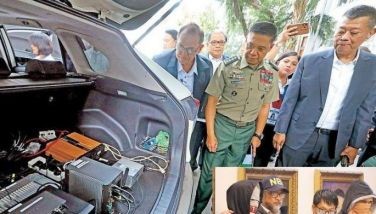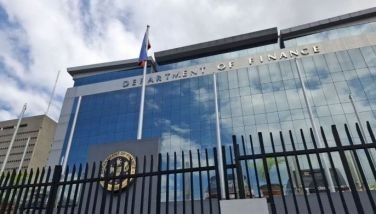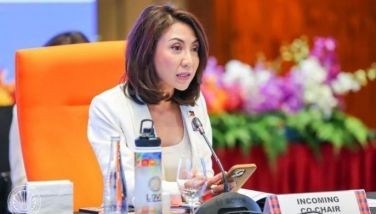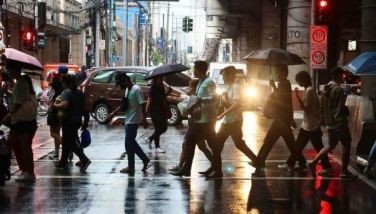‘No sticky fingers’ in vaccine purchase – senators
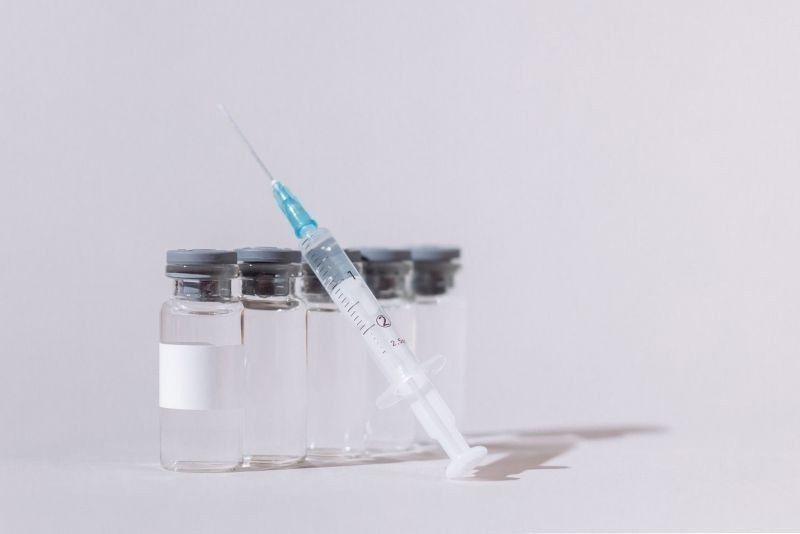
MANILA, Philippines — Senators have not seen any anomalies in the government’s disbursement of its P88.6-billion COVID-19 vaccine budget, but find the procurement of jabs as well as the pace of vaccination too slow to help the economy recover quickly.
Senate Minority Leader Franklin Drilon told reporters yesterday in a text message that at this point, he does not see any overpricing in the government’s procurement of the vaccines or anybody illegally profiting from the transactions.
“Let me put on record: while I’m in the opposition, let me commend (Finance) Secretary (Carlos) Dominguez and (vaccine czar) Secretary (Carlito) Galvez because I do not see the traces of the sticky fingers of the usual suspects in the procurement of the vaccines. Recall that at the start of the pandemic, we heard of overpricing and favoring of certain contractors. We do not hear of such today,” Drilon told Headstart at ANC.
He said the price range of $6.75 to $27.59 per dose of vaccine being procured by the government are within range, based on his own research of worldwide pricing, with the cost of CoronaVac of Sinovac Biotech as the cheapest, and Moderna from the US the most expensive.
The observations came after the Senate committee of the whole held an inquiry on Tuesday to look into the government’s spending of the vaccine budget and hear Malacañang’s justification for its request from Congress for at least an additional P85 billion next year to procure more vaccines for young Filipinos and booster shots for adults.
Senate President Vicente Sotto III, who chairs the all-member committee, said he found the figures and explanations of officials of the Inter-Agency Task Force for the Management of Emerging Infectious Diseases (IATF) and Secretary Dominguez “good enough,” even as the Commission on Audit (COA) can scrutinize all vaccine-related transactions when needed.
“So far so good, considering the difficulties we are encountering with procurement. But I expect improvements and adjustments on the health protocols,” Sotto told reporters.
He said the World Bank and the Asian Development Bank, which are financing the vaccine procurement, are paying the manufacturers directly.
Sen. Panfilo Lacson, Drilon and Sotto said there was no need to hold an executive session to listen to confidential details of the supply contracts with the vaccine makers but they stressed the Duterte administration must speed up procurement given that there are enough funds – mostly from foreign loans – to buy enough to inoculate 50 million to 70 million Filipinos to achieve herd immunity.
Drilon noted in particular the snail-paced disbursement of the vaccine budget, of which P72.9 billion has already been released by the Department of Budget and Management but only 23 percent or P17.1 billion has been obligated where the government has signed contracts.
He, however, said the amounts are with foreign lenders so the government must speed up signing supply contracts with the vaccine makers.
Certificate of analysis
Distribution of one million doses of Sinovac vaccines has started after the Beijing-based pharmaceutical company submitted the product’s certificate of analysis.
According to Health Undersecretary Maria Rosario Vergeire, Sinovac submitted the certificate yesterday so they were able to start sending the vaccines to local government units.
“Manufacturers have to submit the certificate of analysis so we can be sure that the vaccines delivered to us are of quality and in accordance with our standards so it will be safe and effective for us,” she said in an interview with Teleradyo.
Last June 10, the country received one million doses of Sinovac jabs but the government kept them in storage pending the submission of certificates.
Vergeire also noted that some 1.5 million doses of Sinovac vaccines are expected to arrive in the country today.
She added the vaccines are for the National Capital Region Plus 8 areas – Bulacan, Laguna, Rizal, Cavite, Batangas, Pampanga, Metro Cebu and Metro Davao – as well other areas seeing a surge in COVID-19 cases.
The 1.5 million Sinovac doses arriving Thursday morning at the Ninoy Aquino International Airport (NAIA) Terminal 2 are on board Cebu Pacific flight from Beijing, China.
A million of these doses are consigned to the DOH while 500,000 are for the private sector for the inoculation of employees, particularly those with the Federation of Filipino Chinese Chambers of Commerce and Industry Inc. (FFCCCII).
FFCCCII president Henry Lim Bon Liong said in a statement that the rollout for economic frontliners or entrepreneurs and workers would be finalized after the required certificate arrives from Sinovac Biotech.
“We would like to thank government leaders led by vaccine czar Secretary Galvez and China Ambassador Huang Xilian for their support for this vaccine civic project for economic frontliners, which seeks to lessen the burdens on government in terms of expenses and logistics,” Lim said.
He also thanked China for its donation which helped start the country’s vaccination program.
Meanwhile, San Miguel Corp. kicked off its vaccine rollout yesterday as it launched its first vaccination site at the La Salle Greenhills in Mandaluyong.
Joining SMC president Ramon Ang at the launch were Galvez, Sen. Joel Villanueva, National Task Force against COVID-19 deputy chief implementer Vince Dizon, Health Secretary Francisco Duque III, Mandaluyong City Mayor Menchie Abalos and Metropolitan Manila Development Authority chairman Benhur Abalos.
During the event, 500 essential workers from SMC received their initial doses of the Sinovac vaccine. SMC also purchased vaccines from AstraZeneca and Moderna which are set to arrive in the country next month.
The Jose Rizal University vaccination site, also located in Mandaluyong and jointly managed by SMC and the city government, will continue to accept individuals under the A4 category.
Some 250,000 doses of Moderna vaccines will arrive in the country on June 25, according to Galvez.
Galvez made the pronouncement during President Duterte’s public briefing on Monday night, adding the country is also expected to receive around 2.5 million additional doses of Sinovac this month. – Sheila Crisostomo, Louella Desiderio, Rudy Santos
- Latest
- Trending


















